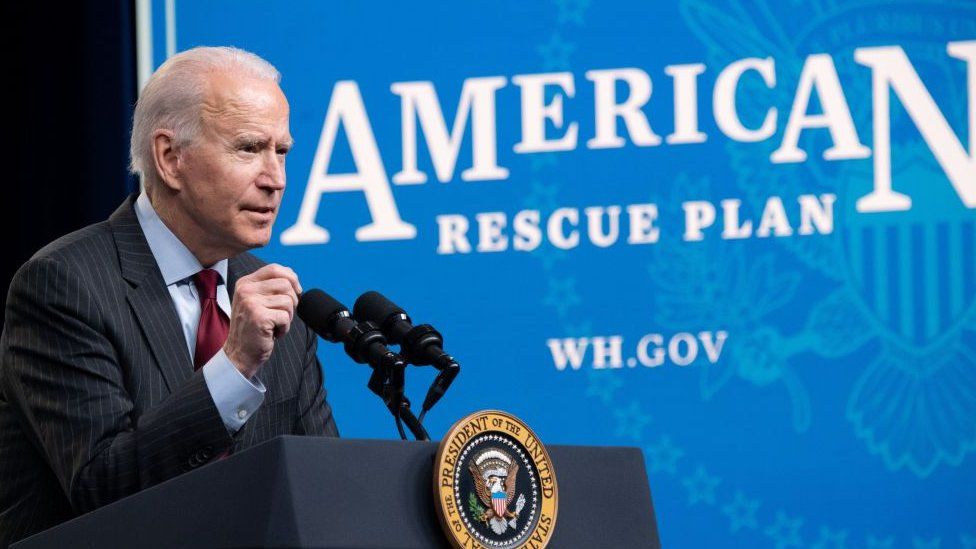President Joe Biden’s $1.9tn (£1.4tn) relief bill to help Americans deal with the impact of the Covid-19 pandemic has cleared its final hurdle in Congress.
The House of Representatives approved the massive economic aid plan 220-211 on Wednesday along partisan lines, with no Republicans voting in favour.
Having already passed through the Senate, the relief package now heads to Mr Biden’s desk to be signed into law.

This sixth Covid-19 relief bill is a major legislative win for Mr Biden.
The bill passed with all but one House Democrat voting in favour.
White House spokesperson Jen Psaki said the president will sign the bill into law on Friday.
What’s in the bill?
The final bill includes one-off direct payments worth $1,400 to be sent off to most Americans.
It extends weekly jobless benefit payments of $300 until September.
It also allocates $350bn to state and local governments, some $130bn to school reopening, $49bn for expanded Covid-19 testing and research, as well as $14bn for vaccine distribution.
A proposal to raise the national minimum wage from $7.25 to $15 per hour became a sticking point in the Senate and did not make it into the final version of the bill.
Who supported it?
The package has been broadly popular among Americans.
A March Pew Research Center poll found that 70% of US adults surveyed expressed support for the bill, including 41% of Republicans.
Democrats – who control both chambers of Congress by narrow margins – largely stuck together and managed to retain most of what was initially proposed.
When announcing the so-called American Rescue Plan in January, Mr Biden said the government needed to “go big” in order to boost the flagging economy.
America’s worst public health crisis in a century has left more than 527,000 people dead and over 29 million infected.
Unemployment skyrocketed over the last year, with a current rate of 6.2%, according to the US Labor Department.
Who opposed it?
Republicans in Congress objected to the bill’s price tag.
They have called for various elements of the package to be smaller and more targeted, including suggesting stimulus cheques should not go to people who have not lost income in the past year.
“House Democrats have abandoned any pretence of unity,” House Republican Leader Kevin McCarthy said on the floor ahead of the vote.
“After five relief bills, it is on track to be the first passed by strictly party lines.”
He noted it was the most expensive single bill in US history.